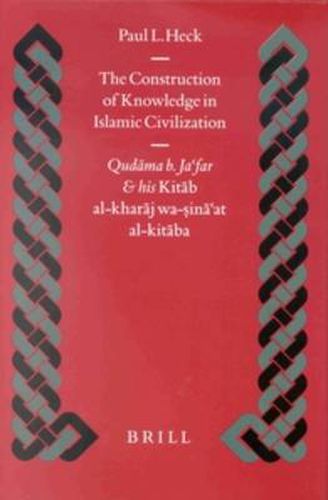Readings Newsletter
Become a Readings Member to make your shopping experience even easier.
Sign in or sign up for free!
You’re not far away from qualifying for FREE standard shipping within Australia
You’ve qualified for FREE standard shipping within Australia
The cart is loading…






This study examines the role of the state in the construction of knowledge in Islamic civilization in its early classical period (3rd/9th and 4th/10th centuries). Different voices representing different social groups - savants, litterateurs, religious scholars, state officials - all brought their particular conception of knowledge to bear on the formation of the various branches of knowledge known to Islamic civilization. Reading the works of various branches of knowledge alongside the administrative encyclopaedia of Qudama b. Ja'far (died 337/948), a state official in the employ of the Abbasid dynasty, serves to highlight the particular point of view of the state in the intellectual and cultural dialogue of the day. At the same time, this approach has shown Islamic civilization to be as much a dialogue of values between the different social groups of the day as a series of events or collection of ideas.
$9.00 standard shipping within Australia
FREE standard shipping within Australia for orders over $100.00
Express & International shipping calculated at checkout
Stock availability can be subject to change without notice. We recommend calling the shop or contacting our online team to check availability of low stock items. Please see our Shopping Online page for more details.
This study examines the role of the state in the construction of knowledge in Islamic civilization in its early classical period (3rd/9th and 4th/10th centuries). Different voices representing different social groups - savants, litterateurs, religious scholars, state officials - all brought their particular conception of knowledge to bear on the formation of the various branches of knowledge known to Islamic civilization. Reading the works of various branches of knowledge alongside the administrative encyclopaedia of Qudama b. Ja'far (died 337/948), a state official in the employ of the Abbasid dynasty, serves to highlight the particular point of view of the state in the intellectual and cultural dialogue of the day. At the same time, this approach has shown Islamic civilization to be as much a dialogue of values between the different social groups of the day as a series of events or collection of ideas.